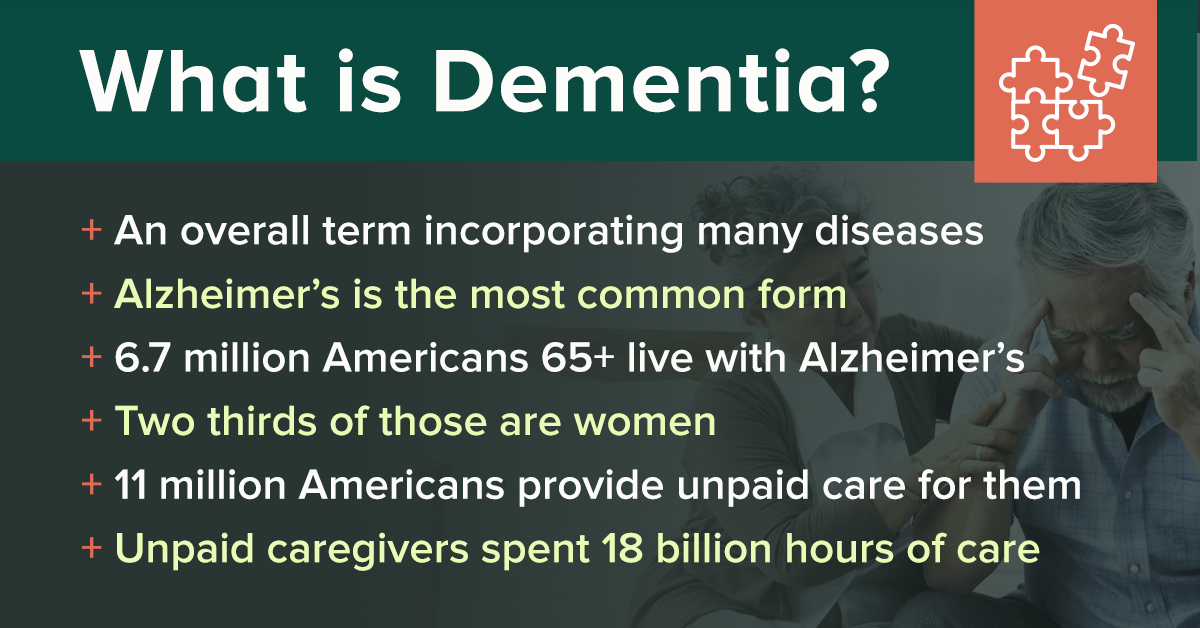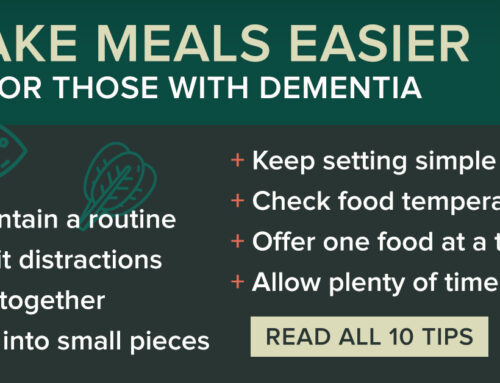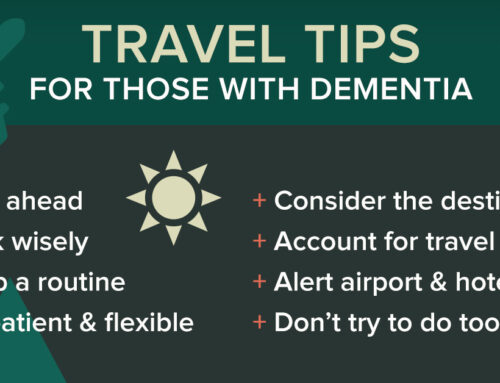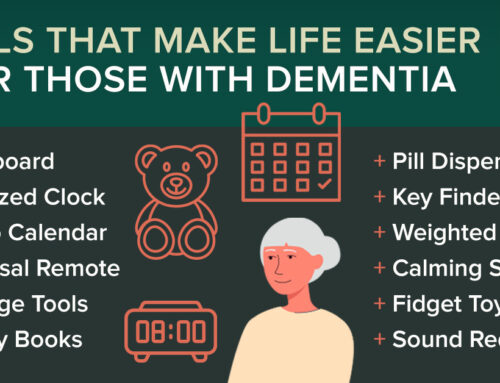What is Dementia?
What is Dementia?
Most people know that dementia is a cruel, but there’s a lot about the disease that people don’t understand.
Understanding Dementia
According to the Alzheimer’s Association:
- Dementia is not a single disease. It’s an overall term to describe a collection of symptoms that one may experience if they are living with a variety of diseases.
- Alzheimer’s is the most common form of dementia – accounting for 60% – 80% of cases.
- Alzheimer’s disease actually begins 20 or more years before memory loss and other symptoms develop.
- An estimated 6.7 million Americans age 65 and older are currently living with Alzheimer’s. By 2050, this number is projected to rise to nearly 13 million.
- About 1 in 9 people age 65 and older has Alzheimer’s.
- 73% of Americans living with Alzheimer’s are age 75 or older.
- Almost two-thirds of Americans with Alzheimer’s are women.
- 1 in 3 seniors dies with Alzheimer’s or another dementia. It kills more than breast cancer and prostate cancer combined.
- More than 11 million Americans provide unpaid care for people with Alzheimer’s or other dementias.
- Last year, unpaid caregivers provided an estimated 18 billion hours of care valued at $339.5 billion.
- Between 2020 and 2030. 1.2 million additional direct care workers will be needed to care for the growing population of people living with dementia – the largest worker gap in the U.S.
Commitment to Support Families Experiencing Dementia
“Alzheimer’s is a brutal disease – one that puts a lot of stress on families,” said Sierra Goetz, co-founder and operations manager at the HomeCare Advocacy Network (HCAN) “Many of us at HCAN have personal experience with Alzheimer’s, so we understand many of the challenges that come with the disease, and we’re committed to helping families cope with them. When more care is required, our professional caregivers can help. They’re trained to care for people who have Alzheimer’s – giving families much needed respite from day-to-day caregiving responsibilities.”
Additional Dementia Resources
For more information about in-home Alzheimer’s care services, visit hcanthrive.com or call your local HCAN-supported office.
To find additional resources and support in your area, visit alz.org.






